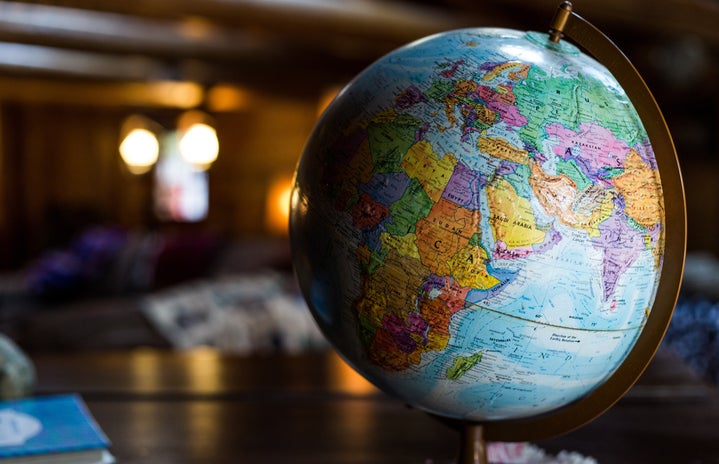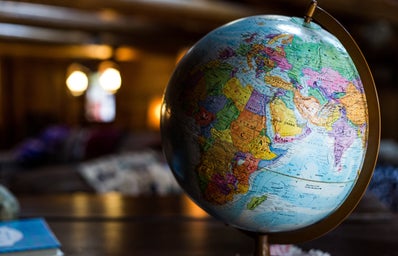A mixed race friend of mine once said to me, “I feel like I am more Asian than Lola, but she looks much more Asian than I do.” I remember the shock of this statement when it was first delivered to me, the way I was both labeled and de-labeled in accordance with my half Korean background, all at once. I felt that there was little infiltration of Asian culture in my day-to-day life aside from my physical appearance, and how this alone made me feel “not Asian enough”.
When studying the mixed race body, there can never truly be a question of whether someone is “too Asian” versus “not Asian enough” if they are, in fact, Asian. Regardless of cultural influence, genetics never lie. Yet, I still find myself feeling stuck between worlds. I have lived in the United States for my entire life. My physical appearance places me as an outsider in American society, while my voice, which speaks perfect English, along with my culture, places me right at home.
I think one thing I have heavily experienced is being “Americanized” as an Asian individual in the midst of a white-washed society.
“Americanized”, what does it mean? One definition of the term “Americanization” describes it as the process of immigrants becoming Americans, that is, “the raising … to the American economic, social and moral standard of life”. It specifically focuses on the body of immigrants, who have the unique experience of being dual-cultural when coming to the U.S.
In this dual-culturalism, immigrants hold on to two bodies. My mother came to America as an orphan at the age of six. Old enough to have vague flickers of memory from her past, but young enough to forget it in the face of her future. She came here speaking Korean, not knowing a word of English. Now, she speaks perfect English with a perfect American accent. In terms of Korean culture, it was virtually nonexistent in its physical manifestations throughout my childhood. Yet, I know that she still has fading memories of her early life in Korea, and certainly holds onto clearer memories of growing up with her adopted family. This is what “Americanization” means to me.
Although I grew up being “Americanized”, I have never felt completely American. Even coming to college, a much more diverse climate than I have ever been in throughout grade school, I still receive comments from people who are surprised to hear that I am mixed. I hear the same response: “You don’t look mixed, I thought you were full Asian!”
Sure, the perceptions are just that: perceptions. Yet, I often feel a heavier weight coming from these statements, a weight that destabilizes my mixed race identity while simultaneously making me doubt if my physical appearance aligns with my internal identity. Although I am “Americanized”, perhaps I will never truly be the same kind of American as my white neighbors are, for when my physical appearance is perceived, I am first labeled as Asian. There is simply no way around this instinctual perception of appearance.
Although my culture is American, I certainly take pride in my Asian ethnicity and appearance. It took time to get to this point. Physically standing out against the Eurocentric grain often made me feel like an outsider to American beauty standards, yet, upon letting go of this ideal, I have discovered pride in appearing Korean. I recently dyed my hair back to my natural brunette after years of coloring it blonde. Coloring my hair certainly fulfilled a need to fit in, born from my trying to assimilate to the white-washed culture I live in.
White-washing manifests itself in more aspects of American culture than the majority might realize, from the Eurocentric events taught in high school history classes to the whitewashing within the media and films we consume regularly. Even in films that do portray Asian actors or Asian culture, this is often depicted in a way that caters to the fetishization of the Asian body, particularly Asian women. Terms such as “yellow fever” (used to describe relationships between white males and East Asian females) that have originated due to this fetishization are not only harmful, but circulate like slang throughout the college population.
When I hear the phrase “yellow fever”, I wonder: why do we not have a term for white male, white female relationships? Why is there no fetishized term for that?
I hear many friends joking about “yellow fever”. I find that it fills me with doubt, for it often invalidates relationships that I know are based on real love and connection, not a gross fetishization of the Asian body. My father is white, my mother is Korean. In no way have I ever associated their relationship to fit into the colloquial term “yellow fever”. When I fell in love with a white individual, I never viewed their love as a fetishization of my body. When I see my peers perceiving these relationships as a form of “yellow fever” from the outside, it fills me with doubt about the validity of my parents’ love, and the relationship that I have with my significant other. This manifestation of doubt clearly tracks down to deep rooted racism against Asians in American society. It puts doubt in a place where doubt never should exist.
Being Asian, along with being immersed in such a whitewashed culture whilst being “Americanized” certainly created a sense of dysphoria for me. Despite culturally growing up in the U.S., my ethnicity has always differentiated me. In the midst of this, the best thing I have accomplished is achieving an acceptance of my racialized body, finding pride and beauty in it. It is a powerful conviction to not try to change my appearance to fit into the culture I am in, and to look back towards my roots. Although I do not speak Korean, I see pieces of my ethnic background within my mother, and thus, inside myself as well.


